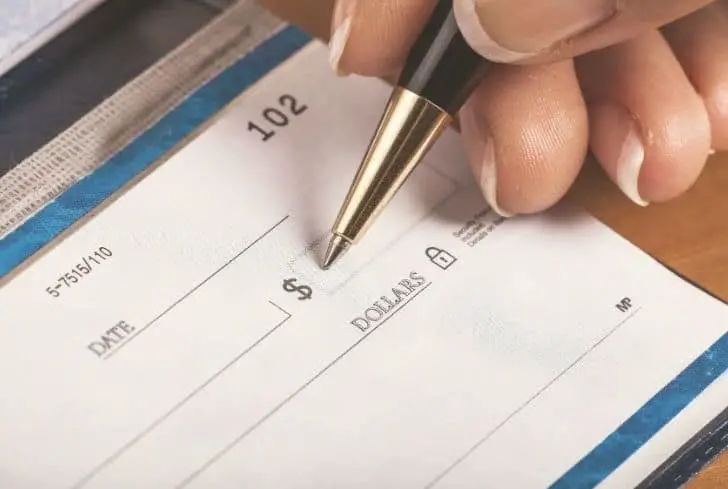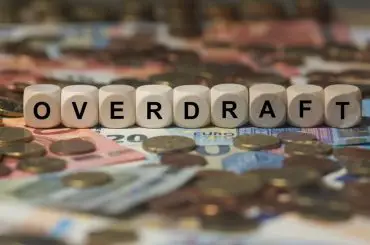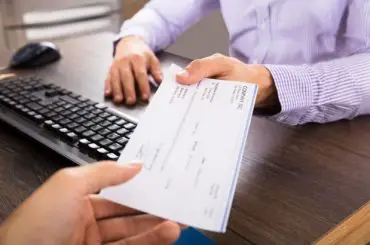Information presented on this web page is intended for informational and educational purposes only and is not meant to be taken as legal, financial, investment or tax advice. We do not accept any responsibility for any trading or investment related losses. Please review our disclaimer on before taking action based upon anything you read or see.
Check registers are not the same as other waste paper that you can put away. Like other financial information, they are sensitive data that you must not let fall into the hands of criminals. You may desire to dispose of your old check registers for a variety of reasons. For example, you’re probably looking to get rid of your check register because you’re unhappy with your bank or you’re relocating to another nation. Regardless of the reason, it would help if you understood how to dispose of old check registers. To this end, we have made this article to help you.
What is Check Registers?

In financial accounting circles, check registers, also referred to as cash disbursements journals are ledger-type accounting instruments that keep track of any payable documents (such as checks, cash, and wire transfers) that come in and out of the user’s bank account. A check ledger uses columns to list the dates, check number, payer or payee, names listed on any accounts.
This can be a personal or a business, depending on the type of check register. Also, any resulting debits or credits must be recorded after a financial transaction, similar to an accounting spreadsheet.
Advantages of Using a Check Register
There are numerous advantages to using a check register. These are some of them:
Quickly obtaining financial transaction data
In whatever form it is used, a check register gives an end-user the confidence to know that a check has cleared on an account. There is no waiting or wondering because the payment is made and recorded in a check register.
This ensures that you will complete the transaction. It encompasses a wide range of payment methods. Cash, checks, wire transfers, debit cards, credit cards, online payment systems like PayPal and Venmo, and ATM transactions are all recorded in a check register.
It aids with better budgeting.
A check ledger functions as a financial playbook, tracking all the money flowing in and out of a bank or other financial account, whether you’re the head of home or the owner of a business. You can make better forward-thinking budgeting selections because you clearly understand what is typically in your credit and debit accounts.
You have a payment history.
Another advantage of a check register is that it serves as an official record of payment. It also aids in the understanding of your financial situation. It stores the entire history of a payment transaction, including who received it, when you made it, how much was paid, and (typically) in what payment form.
This payment history provides you with a clearer picture of your financial situation, allowing you to make smarter financial decisions based on your credit and debit histories.
Not only can a competent check register keep track of incoming and exiting cash regularly, but it can also accomplish other critical functions. A check register, for example, can detect bank or credit card problems, aid in the detection of identity theft, and prevent the possibility of bounced checks, which can result in costly bank fines and damage to your credit score.
Why it is Important to Get Rid of Old Check Registers?
/GettyImages-102416909-56b941923df78c0b1367d802.jpg)
Regardless of the benefits of check registers, it would help eliminate them when they become obsolete. This is a reasonable assumption because check registers contain much personal information, such as your name, address, and account number. Unfortunately, someone can use this information to not only pass a fraudulent check in your name but also to commit other significant crimes.
Anyone with access to a huge amount of information on the internet today can build a false identity. If a scammer obtains this information, they can obtain loans and credit cards in your name. Additionally, a con artist can produce a fake ID and work papers in your name using your old check register.
These individuals can use your information for various purposes, including obtaining tax refunds and making online payments. Due to the seriousness of the situation, experts advise properly disposing of obsolete check registers.
How to Dispose of Old Check Registers

There are several options for getting rid of old checks registers. Here are a few examples:
Paper shredding
Shredding old check registers at home is the simplest way to get rid of them. For huge volumes of old registers, you can use a motorized shredder. You can also invest in several types of shredders for added security.
Cross-cut shredders frequently shred registers into tiny pieces of paper rather than large strips, making it impossible to extract information by combining long strips of paper. Low-cost shredders have the disadvantage of shredding in long strips.
With the use of tape, anyone may reassemble the long strips to obtain your personal information. To provide further protection, you can cut your name and other information lengthwise.
Services for shredding
Shredding old check registers by hand can take a long time if you have a lot of them. You can contact a shredding service instead of shredding them personally. Outsiders can destroy documents at many office supply outlets too. Take your old check registers to one of their in-store print shops, and they’ll shred them right in front of your eyes.
For business use, several banks and credit finance companies have expensive shredders. They also assist their clients with on-demand shredding of check registers. These services are sometimes available on specified dates throughout the year.
Some municipalities also provide shredding services to residents on designated days. You won’t have to go anyplace if your workplace offers a commercial shredding service. Bring along your old check registers for shredding with permission from your employer.
Burning of outdated check registers
Burning old check registers is another simple way to get rid of them. This procedure also eliminates the possibility of someone reassembling the fragmented pieces. It would help if you burned outdated check registers to dispose of them safely and legally.
You may safely burn them in a fireplace. It’s not a good idea to toss a bunch of old check registers at once. Burn one register at a time instead. If you mix full boxes, you run the chance of a flare-up. To avoid flare-ups, you can alternatively burn them in a container in your backyard. This procedure is simple, but you must exercise caution.
Using fluids to soak the check registers
Soaking outdated check registers in liquid is an environmentally friendly way to dispose of them. There are several liquids that you can use to dispose of checks and registers.
You can put them in a baking dish and cover them with water, vinegar, or carbonated soda. Allow them to sit for a few days so the paper can absorb all of the liquid. They will dissolve the paper into pulp, giving it a Papier-mâché appearance. Paper can take anywhere from a few days to several days to break down into a pulp. The soaking liquid usually determines this. Despite the time it takes to dissolve the paper, it is a safe and effective way to dispose of it.
Frequently Asked Questions
What is the best way to dispose of old check registers
You can dispose of old check registers in the following ways:
- Paper shredding
- Services for shredding
- Using scissors to shred
- Using fluids to soak the check registers
Is it okay if I throw my old check registers in the trash can?
No. To prevent fraud, old check registers should be destroyed before being disposed of. Financial papers, such as outdated check registers, are not like other paper waste that may be thrown away or recycled once they’ve fulfilled their purpose.
Is it necessary to save outdated check registers?
Yes. Check registers are small and easy to store, and some individuals want to keep them as a record of their former income and expenses.
What is the maximum amount of time I can keep my old check registers?
You can keep check registers for three to eight years. This is something that your tax expert can assist you with. Keep this record in a secure location away from the reach of strangers.
Do banks destroy old check registers?
Yes. You can request that your bank assist you in shedding your old check register.
Conclusion
In conclusion, most people leave their old check registers lying about and do not properly dispose of them. They quickly forget about them, oblivious to the danger they pose. They can cause a lot of trouble for the account holder if they get into the hands of a thief or scammer.
Old check registers that are no longer needed for taxation or other purposes should be shredded. If you’re unsure about your alternatives, use the methods outlined above on how to dispose of old check registers.
Furthermore, both individuals and corporations must properly dispose of obsolete registers. The procedure is not difficult or lengthy. On the other side, it will save you a lot of money and legal headaches.




